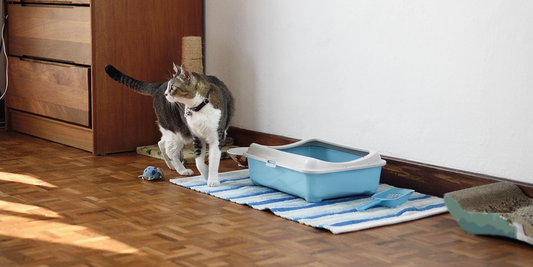Introduction
Cats are beloved members of our families, but like humans, they can suffer from urinary tract infections (UTIs). Understanding the symptoms, treatment options, and prevention methods is crucial for ensuring the well-being of our furry companions. In this comprehensive guide, we delve into the world of cat UTIs, covering everything from common symptoms to effective treatment strategies and preventative measures.
Cat UTI Symptoms, Treatment & Prevention
Recognizing Cat UTI Symptoms
Cat UTIs can manifest in various ways, and recognizing the symptoms early is key to prompt treatment. Keep an eye out for the following signs that may indicate a UTI in your feline friend:
- Frequent Urination: If your cat is making more trips to the litter box than usual, it could be a sign of a UTI.
- Straining to Urinate: Difficulty or discomfort while urinating is a common symptom of UTIs in cats.
- Blood in Urine: The presence of blood in your cat's urine may indicate inflammation or infection in the urinary tract.
- Urinating Outside the Litter Box: If your cat suddenly starts urinating outside their litter box, it could be a sign of a UTI or other urinary issues.
- Strong Odor: Foul-smelling urine is often a sign of infection or inflammation in the urinary tract.
Understanding Cat UTI Treatment
Once a UTI is suspected, prompt treatment is essential to prevent complications and alleviate discomfort for your cat. Treatment for cat UTIs typically involves:
- Antibiotics: Your veterinarian may prescribe antibiotics to combat the bacterial infection causing the UTI.
- Fluid Therapy: Increasing your cat's water intake can help flush out bacteria from the urinary tract.
- Urinary Acidifiers: In some cases, urinary acidifiers may be recommended to create an environment unfavorable for bacterial growth.
- Pain Management: Pain medications may be prescribed to ease discomfort during urination.
Preventing Cat UTIs
While some cats may be more prone to UTIs due to underlying health conditions, there are steps you can take to reduce the risk:
- Hydration: Ensure your cat has access to fresh, clean water at all times to promote urinary tract health.
- Balanced Diet: Feed your cat a balanced diet formulated to support urinary health, avoiding diets high in magnesium and ash content.
- Regular Vet Check-ups: Schedule regular veterinary check-ups to monitor your cat's overall health and catch any potential issues early.
- Clean Litter Box: Keep your cat's litter box clean and provide multiple litter boxes in multi-cat households to reduce stress.
FAQs (Frequently Asked Questions)
Q: Can cat UTIs be contagious to other pets? A: No, cat UTIs are not contagious to other pets. They are typically caused by bacterial infections or underlying health conditions.
Q: How long does it take for a cat UTI to clear up with treatment? A: The duration of treatment for a cat UTI can vary depending on the severity of the infection and how well your cat responds to treatment. In many cases, symptoms may improve within a few days of starting antibiotics, but it's essential to complete the full course of medication as prescribed by your veterinarian.
Q: Are male cats more prone to UTIs than female cats? A: Male cats are generally at a higher risk of developing UTIs due to their anatomy, which can predispose them to urinary tract blockages. However, female cats can also develop UTIs, especially if they have underlying health issues or are senior cats.
Q: Can stress contribute to cat UTIs? A: Yes, stress can weaken your cat's immune system, making them more susceptible to infections, including UTIs. Providing a calm and enriched environment for your cat can help reduce their stress levels and support overall urinary tract health.
Q: Is it safe to use home remedies to treat a cat UTI? A: It's essential to consult with your veterinarian before using any home remedies to treat a cat UTI. While some natural remedies may provide temporary relief, they are not a substitute for veterinary care and may not address the underlying cause of the infection.
Q: How can I help my cat feel more comfortable during a UTI? A: You can help ease your cat's discomfort during a UTI by providing a quiet and comfortable environment, encouraging them to drink plenty of water, and following your veterinarian's treatment recommendations diligently.
Conclusion
Cat UTIs can be uncomfortable and potentially serious health issues for our feline companions. By recognizing the symptoms early, seeking prompt veterinary care, and implementing preventative measures, you can help keep your cat's urinary tract healthy and prevent future infections.
Remember, if you suspect your cat may have a UTI or any other health concern, always consult with your veterinarian for proper diagnosis and treatment.








